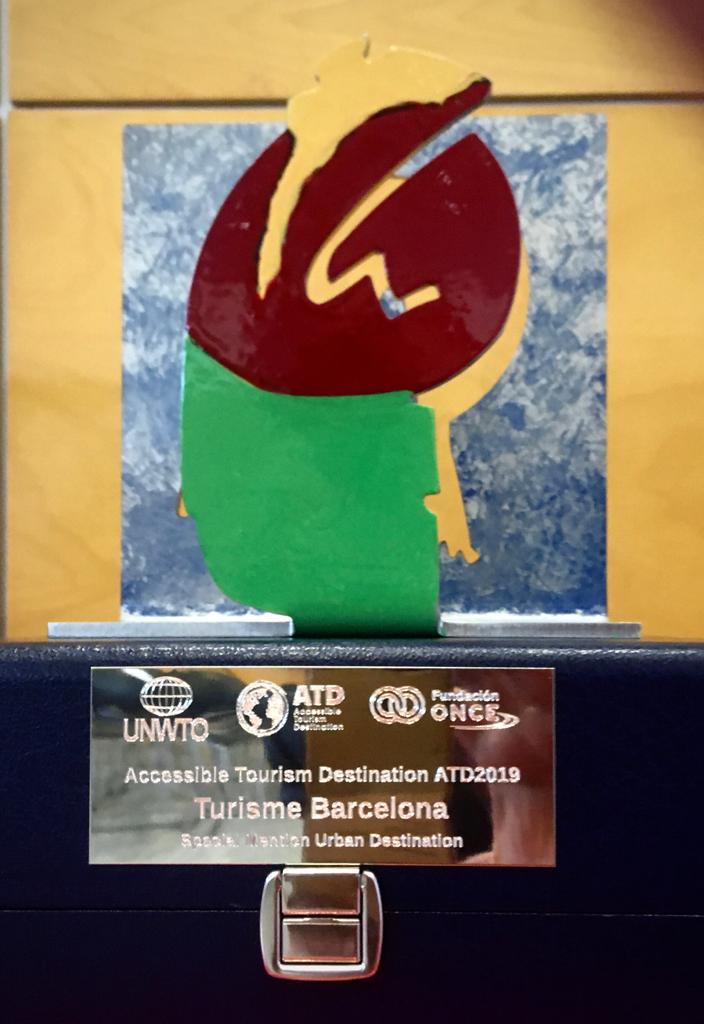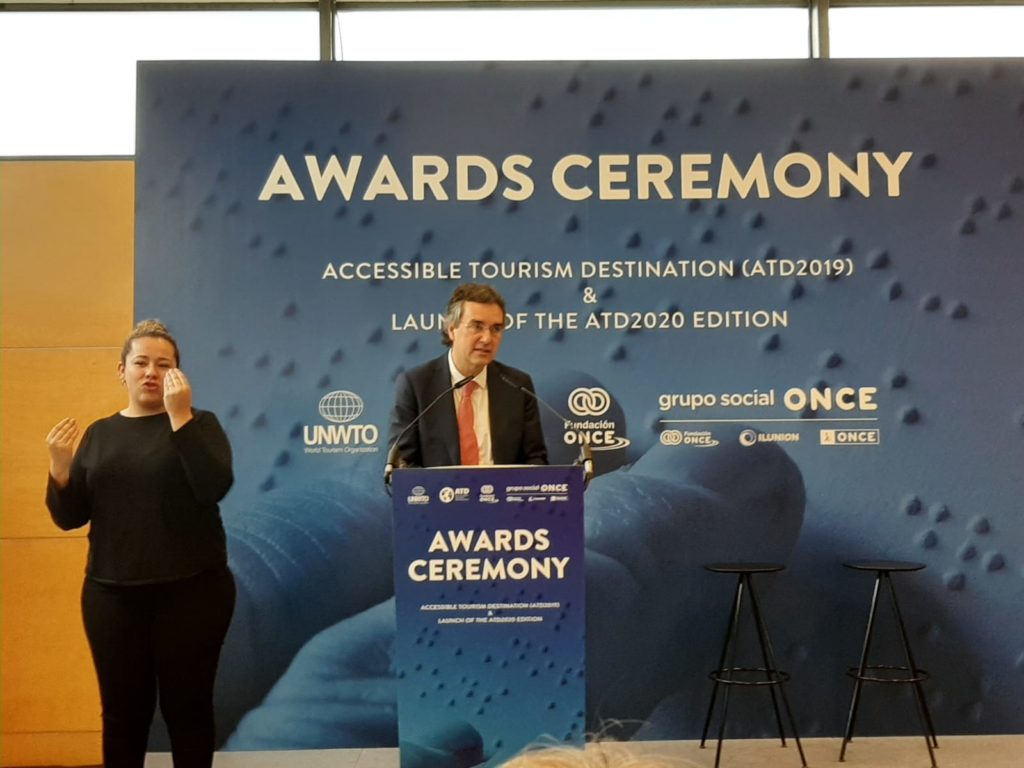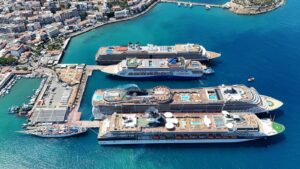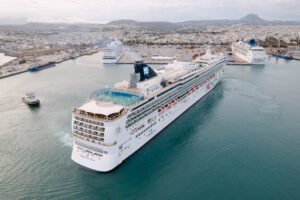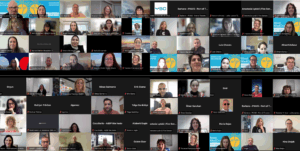The UNWTO and the ONCE Foundation join forces to highlight good practices in accessible tourism worldwide.
The first international Accessible Tourism Destination (ATD2019) awards were held as part of FITUR 2020. They are an initiative of the United Nations World Tourism Organisation (UNWTO) and the ONCE Foundation that rewards the work of accessible tourist destinations for everyone.
Barcelona, represented by Turisme de Barcelona’s CEO Eduard Torres, received the award for best city destination at the first ACCESSIBLE TOURISM DESTINATION awards. Portugal won the award for best practice as an accessible destination and Kerala was named top emerging destination.
With this award, Barcelona is recognised as one of the world’s most accessible cities.
The beginnings of an accessible Barcelona can be traced back to 1992 when the city hosted the Olympic Games. This was the first time the Olympic and Paralympics had been integrated and given equal status. This meant that all the Olympic sites and venues were designed according to the highest accessibility standards.
At the same time, the entire city underwent a major transformation that defined its future urban layout and, from its initial phase, included accessibility as an absolute necessity.
Since 1992, a concerted policy between Barcelona City Council and all its departments has been in place, in particular with the Municipal Institute for People with Disabilities and the private and service sectors, with the common objective of building a more accessible city.
Barcelona has a road system designed to be accessible, with a complete system of ramps and walkways for visually impaired people and pedestrian crossings with audible signals.
91% of the stations on the Metro system have lifts at street level. All the buses on the city’s bus network are fitted with fold-out ramps and visual and acoustic signals.
Public amenities: museums, tourist attractions and hotels comply with accessibility standards, meaning they can be visited by everyone, regardless of their physical, sensory or cognitive abilities.
ACCESSIBLE TOURISM
According the to the World Health Organisation (WHO), it is estimated than 15% of the world’s population (1 billion people) are living with some form of disability. The UNWTO is convinced that accessibility at all tourist amenities and services must be central to any responsible and sustainable tourism policy.
The Turisme de Barcelona consortium offers all visitors to the city the website www.barcelona-access.com, which brings together all the services designed to help visitors to Barcelona with any kind of disability.
The creation of the “Accessible Tourism Destination” label is the result of the joint commitment of the UNWTO and the ONCE Foundation to recognise and promote accessible tourist destinations. The central plank of their aims is the recognition and dissemination of tourist destinations that are making major efforts to ensure their destination can be enjoyed by everyone, regardless of their physical, sensory or cognitive abilities.
The ACCESSIBLE TOURISM DESTINATION Awards put in the spotlight those initiatives undertaken to date, as well as the efforts to maintain and increase the accessibility levels that have been achieved.
